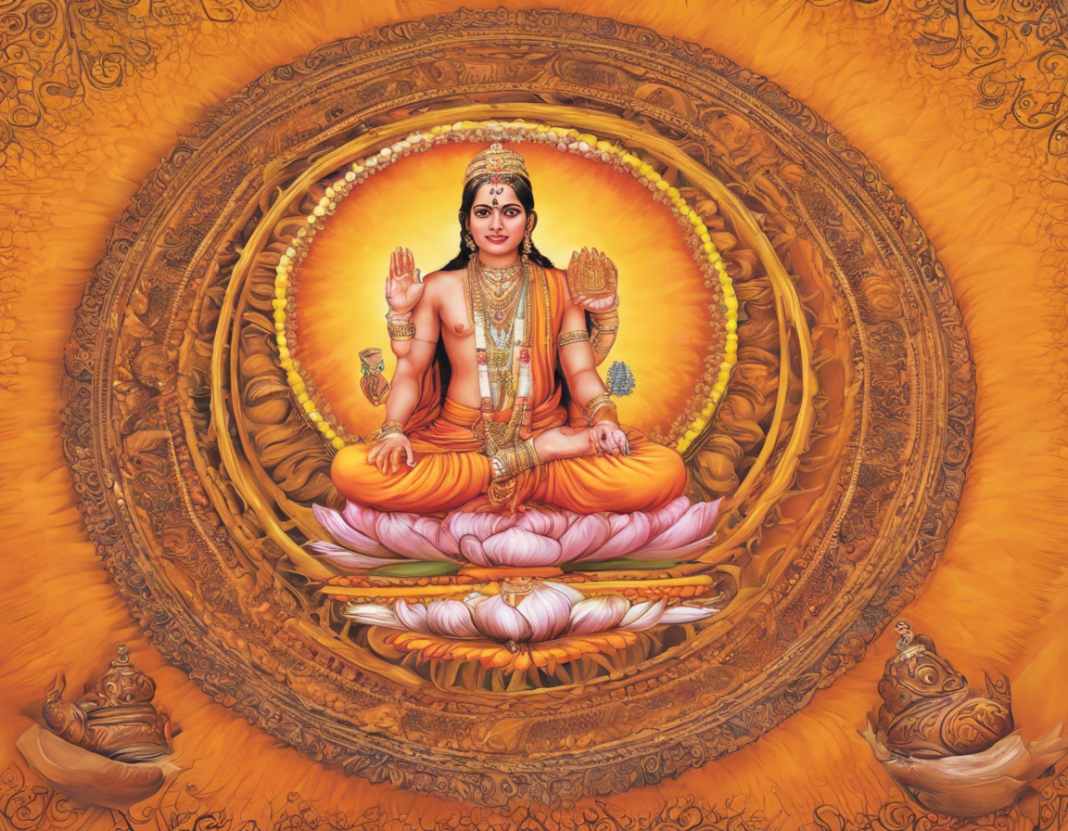Introduction
Sanatan Dharma, often referred to as Hinduism, is one of the oldest and profound religions in the world. Originating in the Indian subcontinent, it is not just a religious belief but a way of life. The term “Sanatan” means eternal, universal, or timeless, and “Dharma” encompasses duty, law, and righteousness.
Origins and Philosophy
Sanatan Dharma traces its roots back several thousand years. It is believed to have no specific founder and is a spiritual way that evolved over time. The core philosophy of Sanatan Dharma is based on the principles of righteousness, duty, morality, and cosmic harmony. It emphasizes the concepts of Karma (action and its consequences), Dharma (duty/righteousness), Samsara (cycle of birth and rebirth), and Moksha (liberation from the cycle of rebirth).
Scriptures
Sanatan Dharma has a rich collection of sacred texts that serve as a guiding light for its followers. The Vedas, Upanishads, Bhagavad Gita, Ramayana, and Mahabharata are some of the prominent scriptures that form the foundation of this spiritual tradition. These texts provide insights into moral values, spirituality, and the nature of reality.
Core Beliefs
Sanatan Dharma encompasses a diverse set of beliefs and practices. Central to these beliefs is the concept of Brahman, the ultimate reality or cosmic spirit that pervades everything in the universe. It also acknowledges the existence of multiple deities representing various aspects of the divine. The practice of Yoga and Meditation is also integral to Sanatan Dharma, as it helps individuals attain spiritual growth and self-realization.
Cultural Practices and Rituals
Sanatan Dharma is deeply intertwined with Indian culture and traditions. Rituals and ceremonies play a significant role in the lives of its followers. Puja (worship), Havan (fire rituals), Festivals like Diwali, Holi, and Navaratri, and Pilgrimages to sacred sites are commonly observed practices. These rituals not only foster a sense of community but also help individuals connect with the divine.
Ethical Values
Ethics and morality form the cornerstone of Sanatan Dharma. The Principles of Ahimsa (non-violence), Satya (truth), Dharma (righteousness), Daya (compassion), and Karma (action) are considered essential virtues in leading a righteous life. These values guide individuals in their interactions with others and the world around them.
Unity in Diversity
One of the defining characteristics of Sanatan Dharma is its acceptance of diverse beliefs and practices. It recognizes that different paths can lead to the same ultimate truth and encourages individuals to follow their own spiritual journey. This inclusivity has allowed Sanatan Dharma to adapt and evolve over the centuries while retaining its core values.
The Concept of Reincarnation
Reincarnation is a fundamental belief in Sanatan Dharma. It holds that the soul is eternal and undergoes a cycle of birth, death, and rebirth until it achieves liberation. The actions and deeds performed in one’s current life determine the nature of the next birth, emphasizing the importance of leading a righteous and ethical life.
Spiritual Practices
Various spiritual practices are integral to Sanatan Dharma. Bhakti Yoga (the path of devotion), Karma Yoga (the path of selfless action), Jnana Yoga (the path of knowledge), and Raja Yoga (the path of meditation) are the four main paths that individuals can follow based on their temperament and spiritual inclinations.
Importance of Guru
The role of a guru or spiritual teacher is highly revered in Sanatan Dharma. A guru is considered essential for spiritual guidance and knowledge transmission. Guru-Shishya Parampara (teacher-disciple tradition) is a sacred relationship that enables individuals to progress on their spiritual path under the guidance of an enlightened teacher.
FAQs (Frequently Asked Questions)
-
What is the significance of the caste system in Sanatan Dharma?
The caste system, although not inherently a part of Sanatan Dharma, has been a social structure in India. It categorizes individuals into different social classes based on birth. However, the true essence of Sanatan Dharma emphasizes equality and rejects discrimination based on caste. -
Does Sanatan Dharma believe in idol worship?
Sanatan Dharma acknowledges the presence of the divine in various forms. Idol worship is a common practice where devotees use physical representations of deities to connect with the divine. It is believed that the divinity can manifest through these idols. -
How does Sanatan Dharma view other religions?
Sanatan Dharma embraces the concept of Vasudhaiva Kutumbakam (the world is one family). It respects all religions and recognizes the diversity of paths that lead to the same ultimate truth. The philosophy advocates for harmony and mutual respect among different faiths. -
Is vegetarianism a mandatory practice in Sanatan Dharma?
While vegetarianism is encouraged in Sanatan Dharma due to the principle of Ahimsa (non-violence), it is not a mandatory practice. Individuals have the freedom to choose their dietary habits based on personal beliefs and cultural norms. -
What is the role of women in Sanatan Dharma?
Women play a significant role in Sanatan Dharma and are regarded with respect and reverence. While traditional roles may have been prevalent, the scriptures also highlight the importance of women in spiritual practices and the pursuit of knowledge.
In conclusion, Sanatan Dharma is a profound and all-encompassing spiritual tradition that offers a holistic approach to life. Its emphasis on ethics, values, spiritual practices, and inclusivity makes it a timeless philosophy that continues to inspire millions around the world. By delving into the essence of Sanatan Dharma, individuals can gain a deeper understanding of themselves, the universe, and the divine.









